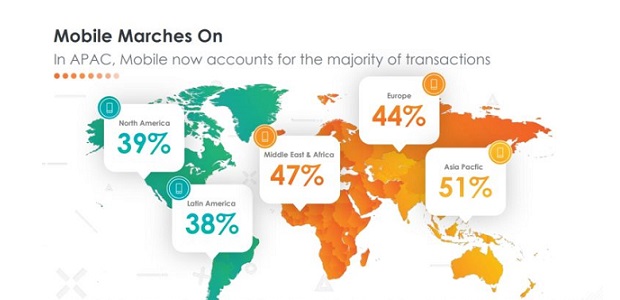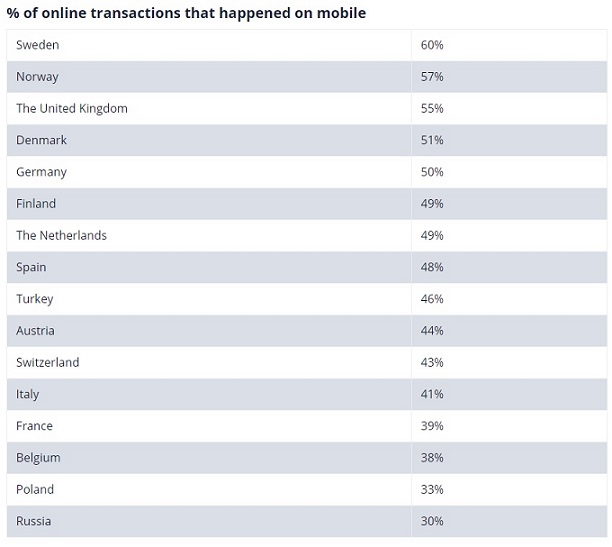
Transactions completed on the smartphone continue to rise globally. Especially in Northern Europe and Japan, mobile transaction now represent over half of online transactions. In Europe, Sweden is the absolute leader with 60 percent.
The numbers come from a report [pdf] from Criteo, which analyzed browsing and purchasing data from over 5,000 retailers in over 80 countries across the globe. It found out that shoppers are using the mobile web and apps more and more for purchasing items, especially among pure-play online retailers.
Apps are an important driver of online sales, with a 30 percent year-over-year increase in the share of in-app transactions. According to the report, customers are more likely to convert when they are shopping on a dedicated shopping app instead of using a mobile website. In the US for example, the conversation rate on shopping apps is over three times higher than on mobile web.
Currently, Northern Europe and Japan are leaders in mobile shopping. The top 5 consists of four European markets: Sweden, Norway, The United Kingdom and Denmark. Here’s the ranking with only the European countries listed:

Banking 4.0 – „how was the experience for you”
„So many people are coming here to Bucharest, people that I see and interact on linkedin and now I get the change to meet them in person. It was like being to the Football World Cup but this was the World Cup on linkedin in payments and open banking.”
Many more interesting quotes in the video below: